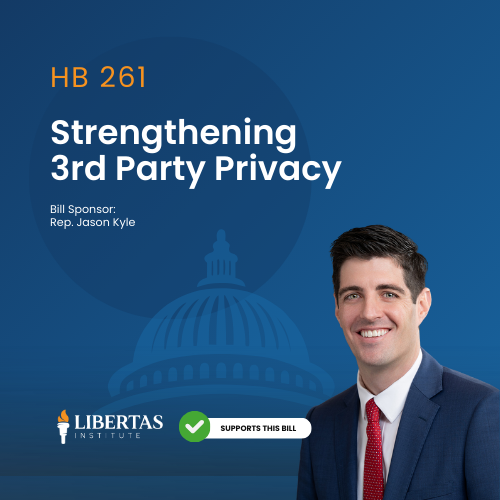This bill passed the Senate 22-0 and did not receive a vote in the House.
Libertas Institute supports this bill
Across the state, youth and their families are facing unreasonable monetary charges — fines and fees — from the government in retaliation for a young person’s involvement in the criminal justice system.
These fines and fees originally had the good intentions of creating a pathway for victims of a young person’s criminal offense to receive restitution. However, collected fines and fees are proving to be an unreliable source of revenue to support restitution efforts, as receipts fluctuate wildly with the amount of court-ordered fines.
Juvenile fines and fees are not just an unreliable source of restitution funds but also net little revenue for the justice system, are wildly ineffective at deterring crime, and negatively impact the families of the juveniles.
In Utah, only $134 thousand in fines and fees were collected from juveniles in 2021. When comparing this number to the overall court budget of $45 million, it’s clear that these fines and fees serve little economic value to the state and its criminal justice system.
Despite being of little economic importance to the government, these fines and fees are still significant to the families that become responsible for paying them. Often, the burden of paying those fines and fees falls on the juvenile’s family members. As some of these families are already struggling to make ends meet, paying for their child’s fines and fees places a huge burden on them. As a result, familial relationships can grow weaker and tension can arise between young people and their families.
Weakening or losing one’s support system does the opposite of deterring crime. Instead, it can make youth more susceptible to re-offending. This is just one example of how juvenile fines and fees can actually increase the likelihood of future system contact for Utah’s youth.
It’s clear that juvenile fines are no longer effective at serving their stated purpose or helping the community. Instead, these fines and fees are antiquated, ineffective, instigate crime, and are of little economic importance to the state.
Fortunately, Senate Bill 120, sponsored by Senator Todd Weiler, would remedy the consequences created from this practice by eliminating juvenile fines and fees across the state. This legislation would ultimately help families stay together, help youth stay out of the criminal justice system, and encourage a more stable funding source for restitution to be made.




